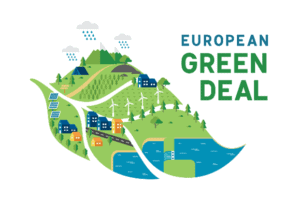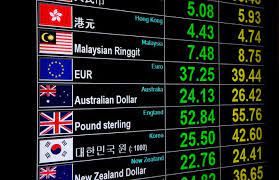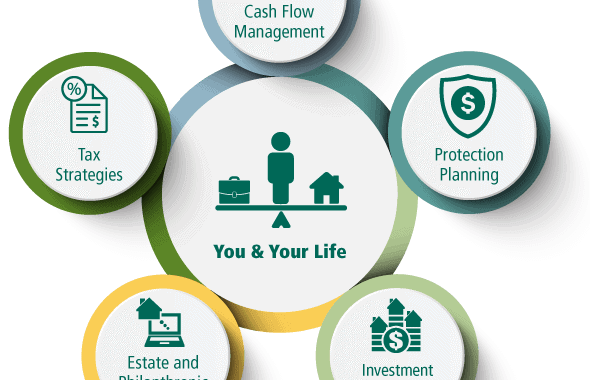
Sustainable Finance
Sustainable finance involves taking environmental, social and governance (ESG) considerations into account when making investment decisions in order to provide sustainability benefits for organisations, communities, and the world as a whole. Here is an introduction to sustainable finance, including how to implement sustainability criteria in your organisation’s investment appraisal process.
Finance as a Driver of Climate Change
Money drives a large part of human life, and its influence can be seen in the devastating effects climate change is having on our planet.
- Cheap energy from fossil fuels
- the destruction of ecosystems for affordable food
- pursuit of resources for material consumption
all lead to environmental damage in some form or another. All of these examples illustrate how money is heavily influencing the climate crisis, as it is driving these decisions that are destructive to the environment.
Climate Risks to the Economy
Climate risks will become a persistent drag on banks and insurers profitability, particularly if they don’t manage them effectively.
Sustainable Finance / Investment is the process of taking environmental, social and governance (ESG) considerations into account when making investment decisions in the financial sector, leading to more long-term investments in sustainable economic activities and projects.
1) Environmental considerations include conservation of nature, promotion of biodiversity. The key considerations are climate change mitigation and adaptation, preservation of biodiversity, and pollution prevention.
2) Social considerations include consideration of humans, relationships etc. The key considerations are inequality, inclusiveness, labor relations,investment in human capital and communities, and human rights issues.
3) Governance includes standards for running a company and economy. The key considerations are the governance of public and private institutions, management structures, employee relations and executive remuneration.
Sustainable investment adds ESG factors into decision-making. A sustainable investment is expected to deliver ESG benefits as well as a financial return.
The Role of the Accountant in Sustainable Finance
Investors are demanding more transparency and accountability from companies and investors.
Fund managers, analysts and finance managers need to develop their skills in evaluating projects and investment opportunities - including assessing ESG risks, greenhouse gas emissions, gender pay gap results, equality and discrimination, and ethics and anti-corruption indicators.
ESG Disclosure Requirements
- India: Business responsibility and sustainability reporting
- United Kingdom: Companies (Strategic Report) (Climate-related FinancialDisclosure) Regulations 2022
- IFRS standards S1 and S2, come into force in 2023
- United States: Greenhouse Gas Reporting Program
- Revised Securities and Exchange Commission (SEC) disclosure rules
- Canada: greenhouse gas reporting
- Australia: National Greenhouse and Energy Reporting (NGER) Scheme
Structure of Sustainable Finance
[A] United Nations
The structure of sustainable finance can appear complex. It has the United Nations at its head.
- The United Nations introduced the Paris Agreement in 2015 which binds nations to reducing their climate impact.
- The United Nations Global Compact encourages businesses worldwide to adopt sustainable and socially responsible practices including the development of sustainable finance.
- The United Nations Principles for Responsible Investment sets out six principles for sustainable finance.
- Principle 1: Incorporate ESG issues into investment analysis and decision-making processes
- Principle 2: Be active owners and incorporate ESG issues into our ownership policies and practices
- Principle 3: Seek appropriate disclosure on ESG issues by the entities in which we invest
- Principle 4: Promote acceptance and implementation of the Principles within the investment industry
- Principle 5: Work together to enhance our effectiveness in implementing the Principles
- Principle 6: We will each report on our activities and progress towards implementing the Principles
[B] European Union
- The European Union is an active player in the field of sustainable finance and most of its policies are managed by the European Sustainable Investment Forum – Eurosif. These policies include a new disclosure regime, regulatory standards and EU Green Bonds.
- Eurosif is a member of the Global Sustainable Investment Alliance which has members in the United States, Canada, Australasia, and elsewhere.
The European Green Deal
Approved in 2020, The European Green Deal aims to make the European Union (EU) climate neutral by 2050 by:
- Clean energy
- Sustainable industry
- Sustainable methods of building and renovation
- Sustainability support to farmers and fisheries
- Eliminating pollution
- Sustainable transport
- Biodiversity
- Sustainable finance (Eurosif)
- UK Sustainable Investment and Finance Association (UKSIF)
- The Green Finance Institute which is involved in the development of green banks across the world
The Green Finance Institute is UK based and seeks to develop scalable financial solutions that will accelerate sector-specific transitions to a low-carbon future. The Green Bank Design Platform aims to support countries and localities across the world to establish effective green banks.
The Problem of Green washing
The climate crisis is both the easiest and the hardest issue we have ever faced. The easiest because we know what we must do. We must stop the emissions of greenhouse gases. The hardest because our current economics are still totally dependent on burning fossil fuels, and thereby destroying ecosystems in order to create everlasting economic growth.
Green washing has become an increasing problem in the marketplace for financial products and investments. This is being addressed by the development of new international standards by the International Standards Organisation and related bodies.
The International Standards Organisation developed ISO 14064 for the quantification and reporting of greenhouse gas emissions.
International Standards Organisation (ISO) : The ISO is now developing standards for sustainable finance:
- ISO 32210 published in January 2022, provides guidance on how key sustainability principles, including those related to environmental, social and governance factors, can be integrated into an organisation’s operations.
- ISO 32220 will standardize terminology in sustainable finance bring a level of international recognition and transparency to concepts, terms, and definitions in the field of "green finance".
- ISO 14030 comprises four standards published in late 2021 and early 2022 which set out the eligibility criteria for designating financial instruments as “green loans” or “green bonds”. This includes verification, monitoring,management, and reporting requirements.
- ISO 14100 provides a framework to identify criteria for environmental impact and performance assessment when preparing or reviewing “green” investment projects.
Publicly Available Specifications (PAS)
PAS are standards developed by industry or sector groups that are recognized by national and international standards bodies. They are not assessed as many international standards are but, instead, set out good practice in specific areas.
- PAS7340 lays out a framework for embedding sustainable finance in financial services organisations.
- PAS7341 establishes a set of requirements to establish,implement and manage the process of integrating ESG and sustainability considerations into investment management.
- PAS 7342 is still in development and will set out requirements for the assessment, governance,labeling and communication of investment funds presented as having sustainable credentials.
Two exposure drafts issued in March 2022 are:
- IFRS S1 General Requirements for Disclosure of Sustainability-related Financial Information
- IFRS S2 Climate-related Disclosures
The challenge of sustainable finance is that it is close to impossible to know if there are not environmental, social or governance “problems” connected with a project’s whole supply chain. The range of possible problems or concerns is vast. It is impossible to identify every issue or weakness,but a well-structured methodology will allow us to show that we have done everything we reasonably can.
Toolkit for Sustainable Finance
There are six steps in our toolkit for sustainable finance
- Define the project scope including environmental, social and governance objectives and the metrics that will be used to quantify the impacts of the project
- Select relevant ESG elements for review in the project assessment
- Evaluate the potential impact of the project on the ESG elements. This includes both positive and negative impacts
- Evaluate the ESG risks including the potential impact of the project on ESG elements and the potential impact of ESG elements on the project itself
- Revise project plans to mitigate risk and enhance benefits
- Conduct the financial appraisal once the sustainability assessment is complete
There is a broad range of widely accepted sustainability metrics that can be used in a sustainable finance evaluation. These include energy consumption, greenhouse gas emissions, water usage,recycling, health and safety, and human rights and social impacts.
The financial analysis takes place after the environmental, social and governance assessment since we should only proceed to reviewing the financial feasibility of a project once its sustainability has been proven. The credibility of the project can be improved by showing its impact in terms of sustainability benefits actually delivered.
What do Accountants Need to Do?
PS: This blog is based on the Webinar on A to Z of Sustainable Finance and ESG by Ross Manyard










